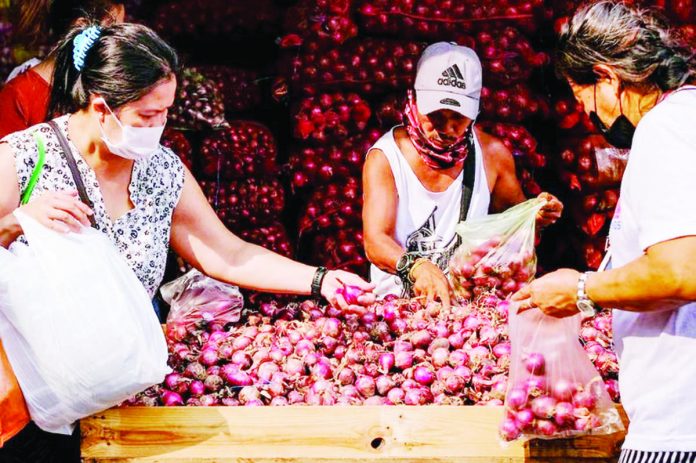
THE government should halt the fresh importation of red onions and prioritize the locally produced staple to help farmers dodge losses, according to Nueva Ecija’s Rep. Rosanna Ria Vergara.
“Sapat pa ang ating stock ng locally produced onions samantalang pumayag na mag-import ang ating gobyerno. Kaya ngayon, ang iyak ng mga magsasaka, walang gustong bumili ng locally produced red onions,” Vergara, a member of the House agriculture committee, told TeleRadyo Serbisyo yesterday.
At the House hearing last week on the possible hoarding and alleged price manipulation of onions that happened late last year, some lawmakers hit the Bureau of Plant Industry’s authorization to import 6,000 metric tons of red onions when there are 75 million kilograms — 75,000 metric tons — of local onions in cold storage facilities.
“Walang traders na gustong bumili sa tamang presyo… nag-isyu ng import permits ang [Bureau of Plant Industry]. Mas gusto nila bibili sila ng P30, P35 [kada kilo] — sabihin mo na P50 — ibebenta ng P120. Napakalaki ng kanilang kita,” Vergara said.
Onions were selling at as much P700 a kilogram from late 2022 to early 2023, with the government attributing steep prices to hoarding and price manipulation.
‘Stop imports, bring local onions to buyers’
The Bureau of Plant Industry should stop issuing new import permits for red onions, Vergara said, adding that the Department of Agriculture should also link local farmers to buyers who can procure their produce in bulk.
The lawmaker said some farmers in Nueva Ecija offered to sell their red onions at around P90 to P100 a kilo just to break even.
She added that the situation is the same across the Philippines, with local onions being edged out by lower-priced imports.
“Pag ‘di kumita ang onion farmers, ‘di na po ‘yan magtatanim sa susunod na taon. Mangyayari sa atin, magiging import dependent tayo [sa sibuyas],” she said. (ABS-CBN News)



